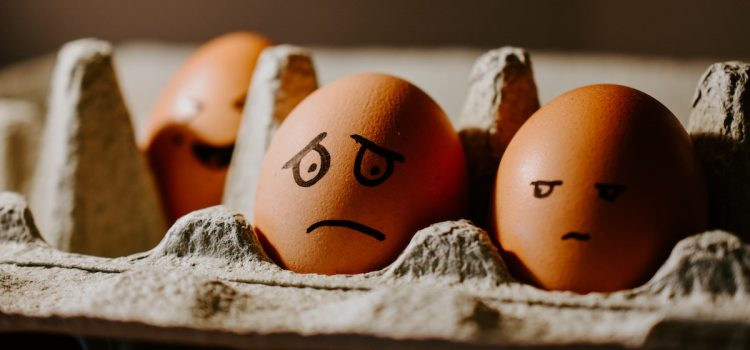

This article is an excerpt from the Shortform book guide to "Enlightenment Now" by Steven Pinker. Shortform has the world's best summaries and analyses of books you should be reading.
Like this article? Sign up for a free trial here.
Is the world getting better or worse? Why do so many people believe it’s getting worse?
Steven Pinker aims to counter the widespread belief that the world is getting worse by showing data that indicates it’s actually improving. But, why do people think things are so bad if they’re not? Pinker explains that this happens for a few intersecting reasons: media slant, cognitive biases, and ingratitude.
Keep reading for Pinker’s take on declinism bias.
What Is Declinism?
Pinker defines declinism as the belief that the modern world is declining in stability and on the verge of collapse. He says that, while people have had such dystopian visions for thousands of years, one major form of declinism bias in the current world is the idea that technology will destroy us. He argues that this sentiment is becoming more widespread and cuts across political lines, with some believing our destruction will come in the form of threats like nuclear war or cyberterrorism and others believing it’ll be due to technology making us lazy, soulless, and miserable. These ideas impede progress, Pinker explains, because they create a culture of pessimism and anti-technology sentiment, contrary to his belief that technology is a major contributor to improving the human condition.
Reasons for Declinism Bias
Media slant: Pinker explains that we tend to believe our societies are worse than they are because the media focus on negative news. This skews our perception of how bad things are. To support this claim, Pinker points to a study that analyzed emotion words in news articles from 1945-2010, which showed that the news has gotten progressively more negative. But we must ask whether more negative things have actually been happening or whether news outlets are becoming more negative in what they focus on and how. Pinker says a look at the data clearly shows it’s the latter. We’ll look at that evidence in the following sections of the guide.
(Shortform note: Researchers found negativity slant in news media around the world, but it was most pronounced in the US. One theory about why this might be is that it’s what consumers want, and the US news media tend to be profit-motivated, while news outlets in other areas of the world receive government funding, so they’re less likely to be motivated by consumer demand.)
Cognitive biases: As an evolutionary psychologist, Pinker is well-versed in cognitive biases. He explains that humans have these biases evolutionarily built into us to help us survive. However in a modern context, he says, these biases tend to work against us instead of in our favor. He describes three cognitive biases that are at work in our brains, influencing us to think things in the world are getting worse.
1. Availability bias: Pinker says that, when we estimate how likely something is to happen, things that come most readily to mind will seem more likely than those that don’t. And he says events or ideas that are sensationalized tend to stick in our minds. So, for example, if you read a news story about a grisly murder and another story about a local political campaign, you’re more likely to remember the murder story later. Because of this, Pinker says, seeing hyper-negative media on a daily basis means we drastically overestimate the frequency of negative occurrences, like murder.
(Shortform note: Psychologists say this bias, also called the “availability heuristic” is a mental shortcut our brain takes to help us make decisions. In some scenarios, it can cause us to make bad decisions. To minimize this bias when you’re making an important decision, try asking someone else to play “devil’s advocate” and give you alternative or challenging perspectives.)
2. Negativity bias: Another bias that’s built into our brains, Pinker says, is a general bias toward negativity. Why would we be built with this tendency? Pinker says we’re hardwired to interpret things in the most negative light as a protective measure against danger. For example, if we see movement in the bushes, our brains will instinctively tend toward the worst-case scenario and interpret it as a predator to prepare us for fight or flight. When this negativity bias activates in everyday life, though, it means we tend to think things are much worse than they are.
(Shortform note: According to positive psychology, our negativity bias not only distorts our perception of how good or bad things are, but it can lead to major mental health problems like depression and anxiety, cause us to make poor choices, and hurt our relationships. Psychologists suggest practicing mindfulness techniques, savoring the good things in life, and doing Cognitive Behavioral Therapy (CBT) to combat your negativity bias.)
3. Nostalgia: Pinker points out one exception to the negativity bias, and that’s in regard to memories of the past. He says we also have a cognitive bias for nostalgia, meaning we tend to remember events of the past as more positive than they were and forget the negative aspects. For example, when you reminisce about your childhood, you’re likely to remember it as more fun and carefree than it really was. This means people will naturally tend to think things were better in the past, which can only mean things have gotten worse over time.
(Shortform note: This is due to what psychologists call the “reminiscence bump” and the “positivity effect.” The reminiscence bump refers to the finding that older people recall events from their childhood and young adulthood better than they remember their middle-aged years. The positivity effect says that as people get older they tend to remember things more positively. These two effects together mean older people are more likely to remember their early years in a positive light.)
- Romanticization and ingratitude: Finally, related to the nostalgia factor, Pinker argues that people who don’t appreciate the positive contributions of modernity to life are simply ungrateful because they don’t realize how much worse life was for people in the past. They’re romanticizing the past, he says, and he argues that almost nobody would actually choose to live in a pre-modern society if they had to face the reality of what that would be like.
| Satisfaction With Life in the Modern World In The Dawn of Everything, Graeber and Wengrow take issue with the assertion that nobody would really want to live in a pre-modern society, arguing that there are many historical accounts of people choosing to do exactly that. They also point out that Native Americans, and other indigenous cultures around the world, consciously rejected attempts to force modernization on them. They ask, if modernization is unequivocally good, why did it have to be forced on people? If people are unappreciative of the positive aspects of modern life, however, this may be due to what psychologists call hedonic adaptation, also referred to as a “hedonic treadmill.” This is the idea that we don’t enjoy things as much when we’re used to them. For example, if you ate your favorite meal every day, it would become less pleasurable over time, and you would begin to crave something else. Perhaps life in the modern world feels dissatisfying for many because it’s all we know, so we yearn for something new and different. |
Recognizing the media slant and our cognitive biases should enable us to intellectually challenge and correct our assumptions, Pinker says. But we rarely do this. He explains that it’s difficult to overcome those biases and to challenge what feels intuitive. If things feel like they’re worse than they used to be, in other words, it’s difficult to actually believe that feeling is wrong. So, Pinker says that the solution is to count—when we look at the data, we can no longer deny that things are getting better. So, let’s turn to the data he presents.

———End of Preview———
Like what you just read? Read the rest of the world's best book summary and analysis of Steven Pinker's "Enlightenment Now" at Shortform.
Here's what you'll find in our full Enlightenment Now summary:
- How the world is actually getting better, not worse, over time
- Why people think the world is worse off than it is
- What Enlightenment values are and where they come from






